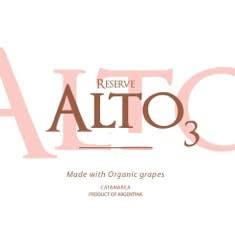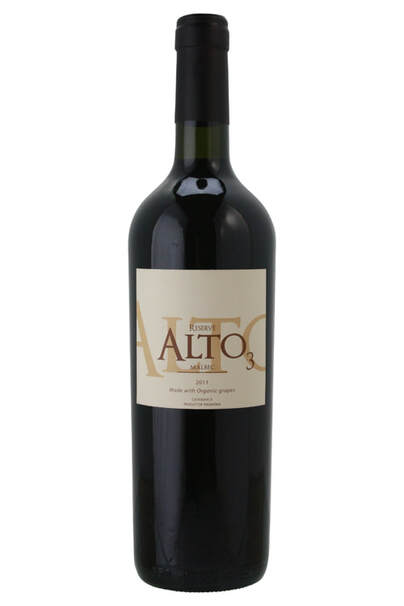The Alto3 vineyards, located in Catamarca, 515 miles north of Mendoza, are some of the highest altitude vineyards in the world. At 4,947 feet, they produce stellar, organic grapes and critically acclaimed wines.
The vineyards are situated between the Andes Mountain ranges and dry-farmed in arid, rocky soils that receive scarce rain throughout the year (<40 mm/1.6 inches). The desert-like soils and dramatic temperature contrasts between day and night contribute to very low yields of high quality grapes.
The altitude and weather facilitate holistic, organic and biodynamic practices. The Bodega uses ancient fermentation methods in concrete tanks and clay cones. The clay cones, which are smaller than concrete tanks, are buried in the ground, and only used for the more structured, full bodied reds. Carlos Arizu, the wine maker at Alto3, says of these unique fermentation methods: “It gives more structure to the fruit, and the wine is less subject to fluctuations in the temperature...Fermentation takes longer,” says Carlos, “but it produces more complex and better wines! It’s worth the longer wait!”
Alto3 uses only grapes from its Estate and yields are kept low (average of 5500 kg/Ha). Absolutely no chemicals are used (pesticides, fertilizers, additives, etc). The grapes are carefully selected and handpicked into small, 30 pound cases. Fermentation is spontaneous, with native yeasts from the estate. After a 21-day maceration, the wines are aged for six months in American and French oak casks. No winemaking additives are used and no fining or filtering takes place. Sulfite levels are 60 mg/L.
The vineyards are situated between the Andes Mountain ranges and dry-farmed in arid, rocky soils that receive scarce rain throughout the year (<40 mm/1.6 inches). The desert-like soils and dramatic temperature contrasts between day and night contribute to very low yields of high quality grapes.
The altitude and weather facilitate holistic, organic and biodynamic practices. The Bodega uses ancient fermentation methods in concrete tanks and clay cones. The clay cones, which are smaller than concrete tanks, are buried in the ground, and only used for the more structured, full bodied reds. Carlos Arizu, the wine maker at Alto3, says of these unique fermentation methods: “It gives more structure to the fruit, and the wine is less subject to fluctuations in the temperature...Fermentation takes longer,” says Carlos, “but it produces more complex and better wines! It’s worth the longer wait!”
Alto3 uses only grapes from its Estate and yields are kept low (average of 5500 kg/Ha). Absolutely no chemicals are used (pesticides, fertilizers, additives, etc). The grapes are carefully selected and handpicked into small, 30 pound cases. Fermentation is spontaneous, with native yeasts from the estate. After a 21-day maceration, the wines are aged for six months in American and French oak casks. No winemaking additives are used and no fining or filtering takes place. Sulfite levels are 60 mg/L.

